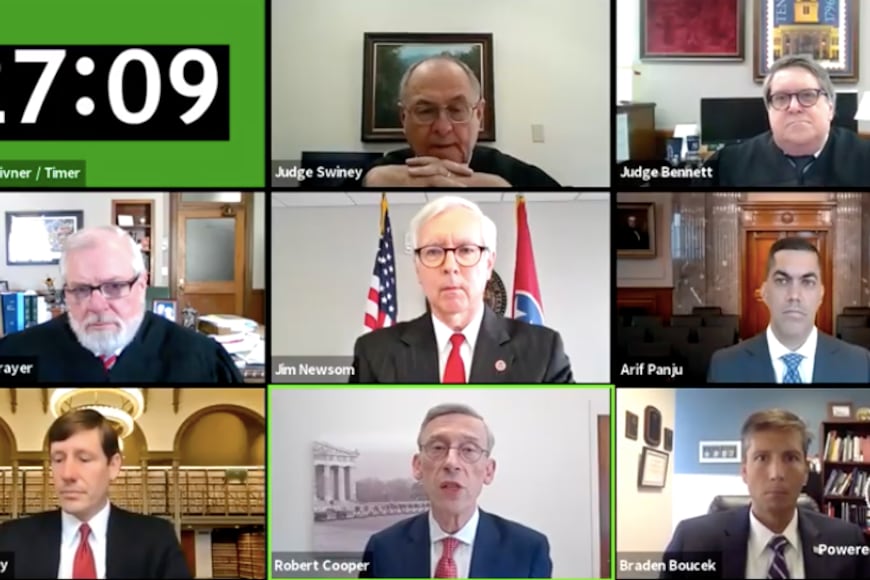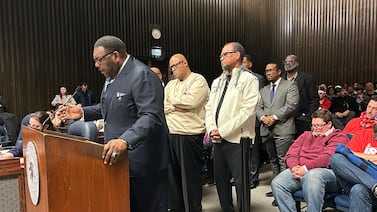A Tennessee appeals court on Tuesday upheld a Nashville judge’s ruling that a school voucher law pushed by Gov. Bill Lee is unconstitutional.
In a unanimous decision, the state Court of Appeals declined to reverse a lower court’s ruling from May that kept the controversial program from launching this fall.
The decision from the three-judge panel is the latest in a series of legal blows to the upended voucher law, which the GOP-controlled legislature barely passed in 2019 after a decade of legislative defeats.
The state is expected to appeal the case now to the Tennessee Supreme Court.
“We are reviewing the ruling and will be consulting our clients regarding further steps, including appealing the ruling,” said Samantha Fisher, spokeswoman for Attorney General Herbert Slatery III.
The governor’s press secretary, Gillum Ferguson, called the ruling “disappointing.”
“We will appeal it so families have options for their children,” he said.
At issue is whether the state can start providing taxpayer money to eligible students in Memphis and Nashville to pay for private school tuition and other private education services.
The appeals court heard arguments on Aug. 5 as the state and several pro-voucher groups challenged Davidson County Chancellor Anne C. Martin’s ruling that overturned the new law.
Like Martin, the appeals panel said the legislature violated the so-called home rule amendment to the state constitution when it passed an education savings account law that affects only students in Nashville and Memphis. Local governments in those two cities, which have consistently opposed vouchers, filed a joint lawsuit in February to challenge the law.
“This is an important victory for local government in Tennessee,” said Bob Cooper, law director for Metro Nashville and lead attorney for the plaintiffs. “It reaffirms that the State cannot impose burdens on a select few counties or cities without their permission.”
The ruling was praised late Tuesday during a meeting of the Shelby County Schools Board of Education, which had passed numerous resolutions against voucher proposals.
“This is excellent news as we continue to champion public education and equitable funding,” Superintendent Joris Ray told board members.
Leaders of several pro-voucher groups that intervened in the case said they expect a different outcome when the case goes to the Tennessee Supreme Court.
“We are confident the Supreme Court will find that the state’s careful attempt to throw a lifeline to parents stuck in the worst performing schools is in fact constitutional,” said Justin Owen, CEO of the Beacon Center of Tennessee.





